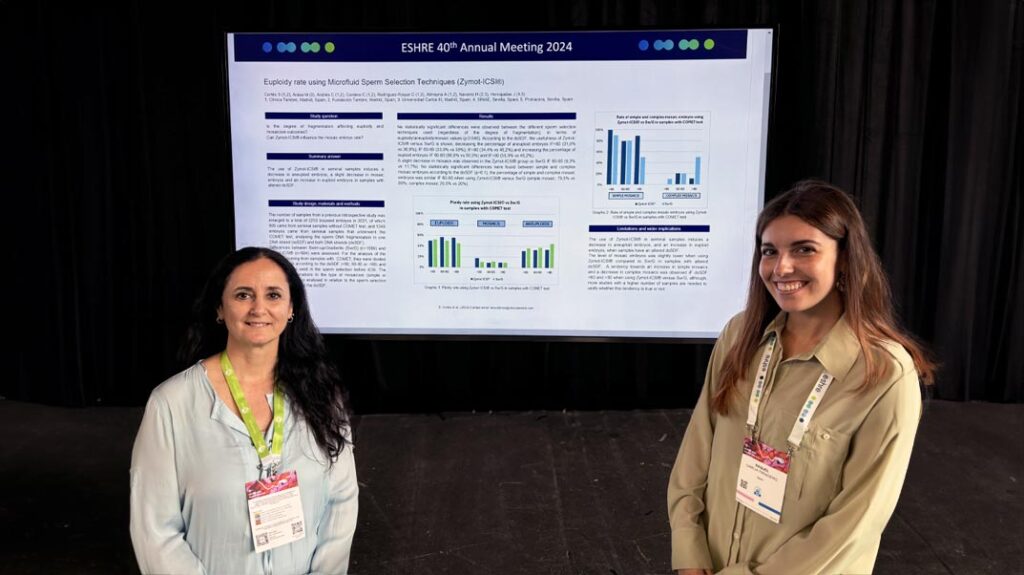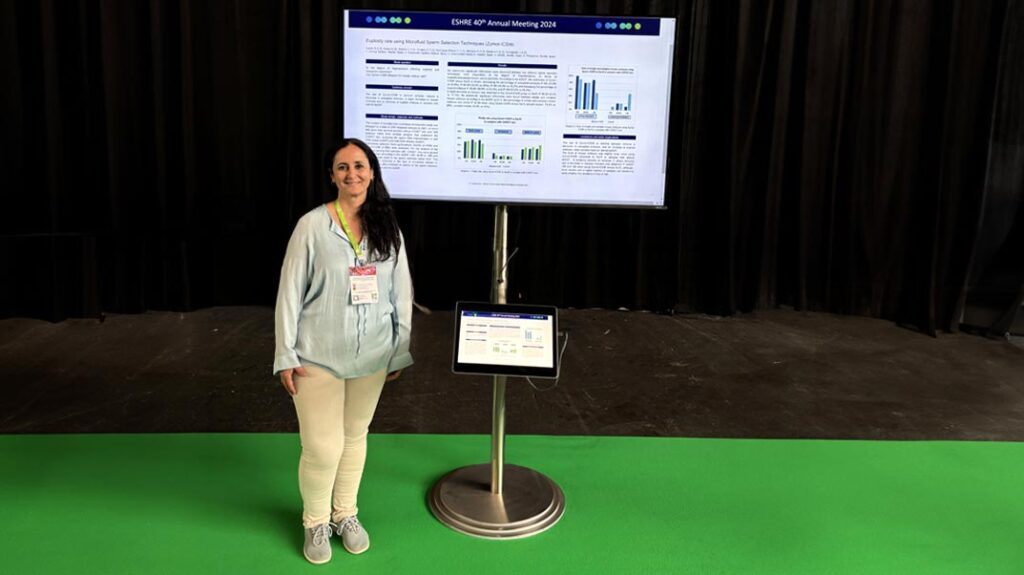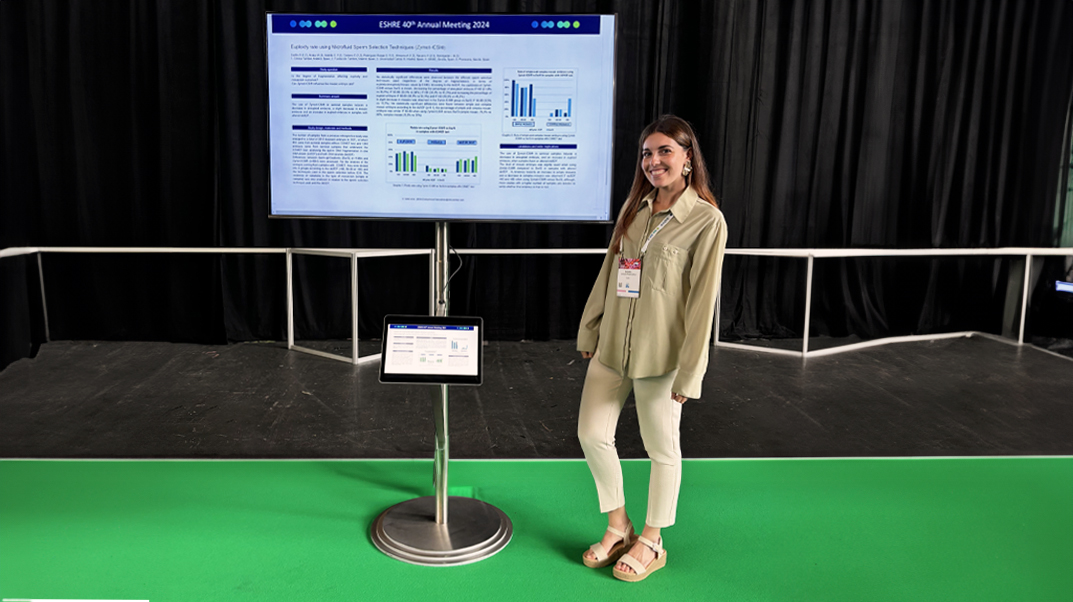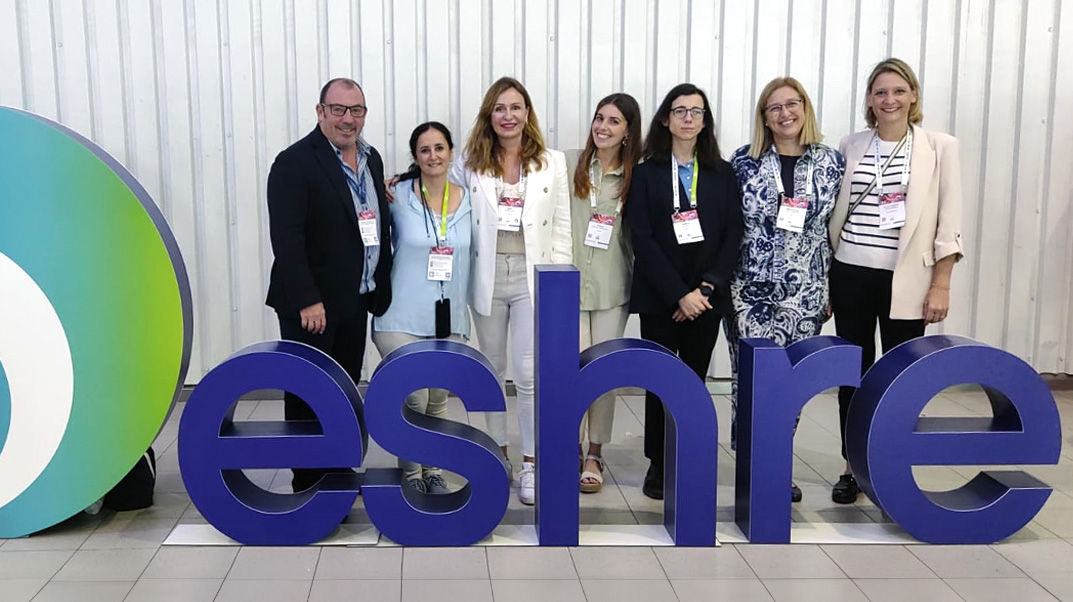Table of contents
This year, Clinica Tambre will be at the epicentre of fertility innovation at the ESHRE 2024 Human Reproduction and Embryology Congress in Amsterdam. As a leader in assisted reproduction treatments, we are committed to learning about and sharing the latest scientific advances.
This participation not only strengthens our commitment to medical excellence, but also opens new doors for our patients, bringing them closer to realising their dream of parenthood.
Our team at ESHRE
At the 40th ESHRE Congress 2024 in Amsterdam, Clinica Tambre stands out as a key figure in the field of fertility. This global event brings together experts in reproduction, providing a platform for the exchange of knowledge and the advancement of life-changing treatments.
Our CEO Inge Kormelink, scientific director Dr. Ángela Llaneza, laboratory director Susana Cortes, embryologist Raquel García and scientific advisor José Horcajadas will be there from Sunday 7 July.

Susana Cortés, director of the Tambre laboratory, and embryologist Raquel García, next to one of the posters presented at the ESHRE.
Commitment to patients
Participating in this international congress enhances our medical practice and demonstrates our commitment to our patients. It helps us to apply the latest research and techniques, easing the path to pregnancy, which in turn helps to reduce the stress of fertility treatments.
Study of sperm selection techniques by microfluidic microfluidics (ZyMot-ICSI®)
Our team is presenting two relevant scientific studies, both of which have been developed at the Tambre Foundation. One of the studies has analysed the sperm selection technique ZyMot-ICSI® (formerly Chip-Fertile) to determine its influence on pregnancy rates.

Tambre laboratory manager Susana Cortés at the ESHRE.
Tambre researchers assume that the quality of DNA in spermatozoa is crucial for both fertilisation and healthy embryo development. Damaged or fragmented sperm DNA can affect the sperm’s ability to fertilise the egg and, in more severe cases, may be associated with fertility problems, miscarriages or even genetic conditions in the offspring.
The study has investigated whether the use of the ZyMot-ICSI® technique affects the number of embryos with normal DNA and the number of embryos with a mixture of normal and abnormal cells in patients whose sperm have high levels of DNA damage.

Embryologist Raquel García.
Male fertility
To do so, 684 embryos biopsied were analysed, divided between semen samples without COMET test and with COMET test, which evaluates DNA fragmentation. The sperm selection techniques included two of those usually performed in laboratories: Swim-up/gradients and ZyMot-ICSI®.
Tambre researchers have shown that with the use of ZyMot-ICSI® there was a decrease in aneuploid embryos and an increase in euploid and/or mosaic embryos, regardless of the rate of DNA fragmentation. And this means an increase in the success rates of fertility treatments.

